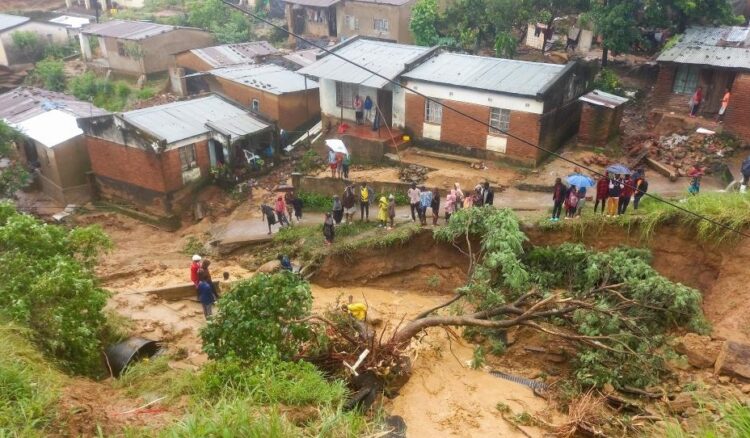Lilongwe: The death toll from tropical cyclone Freddy in Malawi has increased to 326, President Lazarus Chakwera announced.
In an address to the nation late Thursday, he also said that number of people injured and those still missing have risen to 201 and 796, respectively, Xinhua news agency reported.
“The number of people displaced has more than doubled to 183,159, as has the number of households displaced, which now stands at 40,702,” he said.
The country has set up 317 camps across the stormed region to mitigate the situation, according to Chakwera.
The Malawi leader has re-emphasized the need for more humanitarian support from local and international organisations and individuals, describing the devastation and desperation as “unbelievable and overwhelming.”
Local business people have pledged to mobilize up to $1.5 million towards supporting residents affected by the cyclone.
Meanwhile, health experts raised concerns that the cyclone-induced floods, strong winds and mudslides, could cause waterborne diseases such as cholera.
Charles Mwansambo, the Secretary for Health, has acknowledged those risks, but he said the government is working closely with health agencies to minimize the threat.
“The ministry and other health agencies are working hand in hand to tighten the efforts and make sure that the response is immediate,” Mwansambo told Xinhua.
Malawi Red Cross Society director of programs and development, Prisca Chisala, said that many of the victims residing in evacuation camps are at high risk of contracting cholera due to lack of sanitation facilities.
“It has become increasingly challenging to regulate the provision of clean water and food, posing a potential threat to the lives of many,” she added.
Civil society organizations in Chikwawa and Nsanje districts in Lower Shire Valley, have also sounded the alarm about the potential cholera outbreak in the camps, as many victims lack toilets and other water, sanitation, and hygiene facilities.
The country has already recorded 54,120 cholera cases with 1,660 deaths since March 2022, according to the health authorities.
Freddy is the strongest tropical cyclone on record and could also be the long-lasting one, according to the World Meteorological Organization.
On Sunday, it struck Mozambique as a cyclone — for the second time in a less than a month after battering the island nation of Madagascar in the Indian Ocean, causing severe destruction.
It has been difficult to determine the extent of the damage caused in Mozambique and the number of deaths as power supply and phone signals were cut off in some parts of the affected areas.
Freddy also broke records for the strength it has accumulated over the 8,000-km path it travelled across the Indian Ocean from north-western Australia.
(IANS)
















